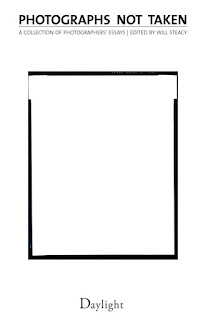Astute readers may have noticed that not too many new blog entries have appeared here in the last few weeks. The reason, as always, is due to the constraints imposed on my life outside of photography (the side that pays most of my family's bills, by far;-) The two sides rarely interact, though on occasion - and usually unexpectedly - partly intersect. Such as happened yesterday, when - while being introduced to speak at a scientific meeting (on a distinctly non-photography related subject) - the person doing the introduction turned to me and asked whether my slides will include samples of my photography? My mind was so far from photography at that moment (indeed, I was deeply immersed in my usual minute-before-giving-a-talk inner meditation ritual), that I hardly reacted at all and certainly had no idea what to say. I managed to stammer something banal like, "No, no, that's just something I do on the side." Which is, of course, both literally true (if one measures such things in terms of "time spent"), and emphatically false (if the metric is "soulful nourishment gained").
However, neither metrics nor the "scientific talk" I gave yesterday is the focus of this short (and new!) blog entry. My wish is merely to point out a wonderful little book - called Photographs Not Taken - whose subject and insights are very apropos, given the recent constraints on my ability to do photography. The book is a collection of short essays - by a wide range of photographers - about moments in space and time that never became photographs! Oh, how well I (as all photographers can, at one time or another) resonate with those moments. Maybe we've forgotten our camera, or our tripod, or filter; maybe our camera froze at an inopportune moment; maybe the subject of our gaze shifted its position, or flew away, as we were preparing to take the picture; maybe a gust of wind blew that perfectly composed image into the mists of time, or that sudden burst of sun from behind a cloud ruined the perfect exposure. Or maybe, as has been the case for me for more than a few weeks now, everything is in its proper place and perfect working order except me. Lately, my mind has been so filled - and exhausted - from day-job angst, equations, computer code, briefing slides, and more angst, that about the only images I've managed to capture have been quick-grab iPhone images of some older prints of mine I have hanging in my office to send to a friend.
So, Photographs Not Taken well summarizes my body of work over the last several weeks ;-) But it also reminds me of other genuine "Photographs Not Taken" moments I experienced in the past, when, even though I was in the right state of mind and soul, and had perfectly well functioning camera and gear by my side, the photograph I wanted to take - the photograph I needed to take - I did not take, and is now gone forever. The photograph I am thinking of - more precisely the series of photographs I could easily have taken and never did - happened between 25 and 30 years ago, when my dad (an art restorer / artist) was still in his prime and worked at home in his upstairs studio. Except for this one precious photograph, I do not have any other visual record of my dad working as an art restorer in his studio! I have written before about this being the single greatest regret in my life as a photographer (thus far); namely, that I had never trained my eye and camera on my dad while he worked in his studio. A regret that stings only deeper each year that passes since he passed away 10 years ago.
Readers interested enough to look up the essays in Photographs Not Taken will be treated to many stories similar to mine, that range from whimsical, to personal, to tragic. Of course, the book contains no photographs (at least of the conventional variety ;-) and even the typesetting is kept to a bare minimum, the focus being squarely on the stories themselves. Collectively, these wonderful stories teach us what we must do to become better photographers. They remind us that we are - in each and every moment of our lives - immersed in an infinite field of ever-changing extraordinary and timeless images; and the fact that we have or have not a camera, or want or do not want or cannot use it, hardly even matters. Just look, revel in what you feel, and remember.











